Swiss-EU bilateral path hits critical juncture
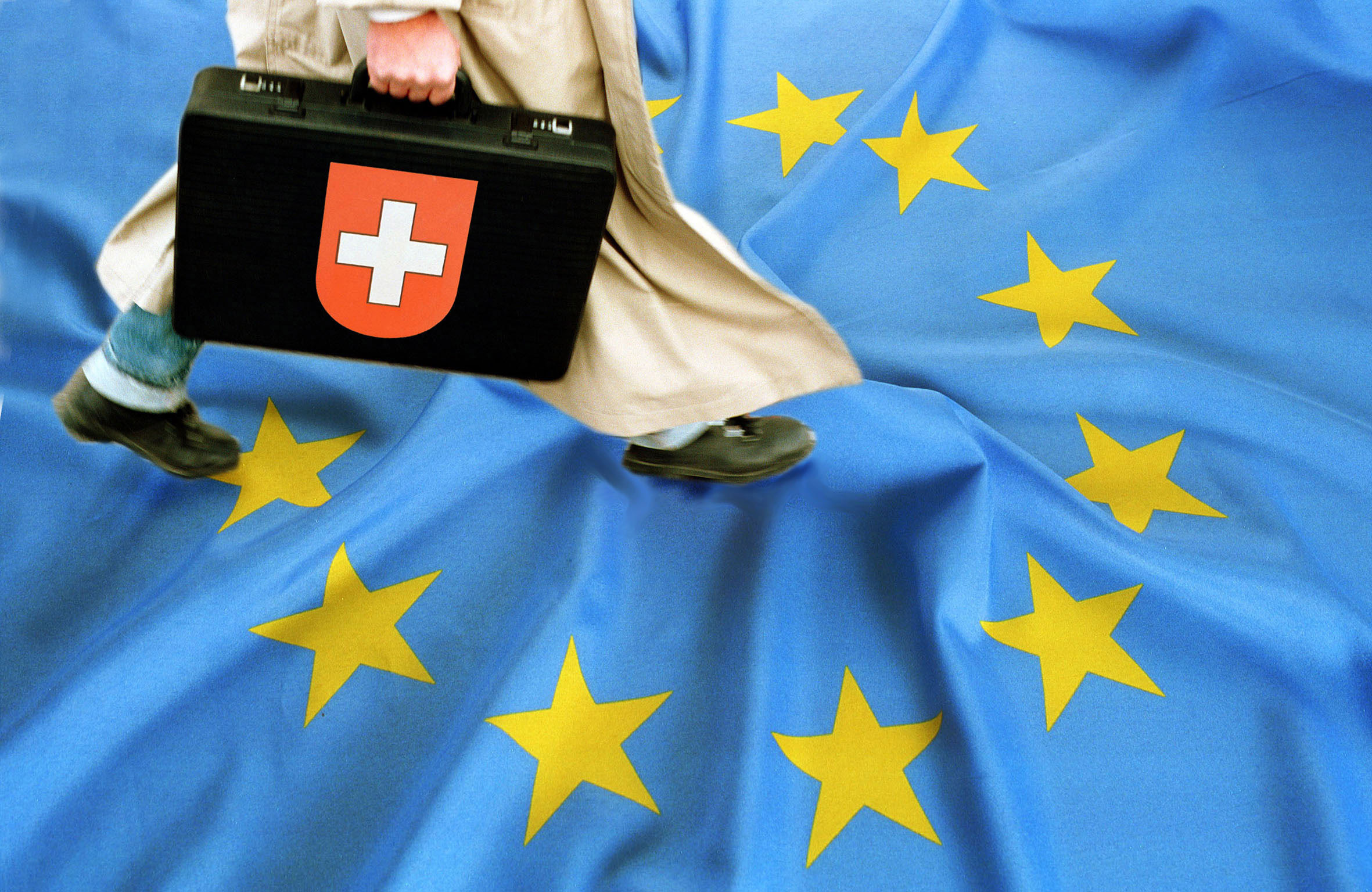
Talks between Switzerland and the European Union over their future working relationship are at a crucial stage, say Swiss-EU specialists.
This week the Swiss ambassador to the EU gave a presentation on the state of bilateral relations to EU experts in Brussels. This comes amid a flurry of meetings and declarations as Switzerland comes under increasing pressure over its EU relations.
On Wednesday Jacques de Watteville described his meeting with experts from the 27 EU member states evaluating relations with Switzerland as part of the European Free Trade Association (Efta) group as “important and useful”.
De Watteville reiterated that Switzerland wished to pursue the bilateral path, which “doesn’t work too badly”.
“Although there are some difficult issues, they are a minority and shouldn’t conceal the others,” the ambassador insisted.
By the end of November the Efta expert group is due to issue an extensive final report on Swiss-EU relations.
After the Swiss ambassador’s presentation, a European Commission expert reportedly painted a less rosy picture, describing the bilateral path as “rather stony”.
The commission presented a list of thorny issues, ranging from trade, agriculture, the free movement of people, savings and cantonal corporate tax, energy and the supervision of financial institutions.
Switzerland is not a member of the EU but it has concluded 20 major bilateral agreements with the 27-nation bloc, and another 100 secondary accords.
But Brussels no longer wants to sign tailor-made agreements with Switzerland, which is being told to align itself on EU rules and regulations.
Possible options
This week’s session took place in parallel to a working group of Swiss-EU experts set up to look at “possible options” for a future strategy on relations.
On December 13 EU foreign ministers will adopt a position on the issue. The last one in December 2008 was highly critical, however.
The Swiss government says the focus of the group’s work should be on adapting Swiss law to EU rules for the more than 120 bilateral accords with Brussels and the introduction of a tribunal to resolve contentious issues.
Switzerland says it hopes the options will enable it to keep sovereign rights.
The government does not exclude proposing a framework agreement or a second attempt to conclude a European Economic Area (EEA) treaty – a halfway house to full EU membership – which was rejected in a nationwide vote in 1992.
But the government refuses to agree to an automatic adoption of EU rules.
The president of the European Commission, José Manuel Barroso, has described the “network of bilateral accords” between the two sides as “complex, very hard to manage”.
During his visit to Geneva earlier this month, Barroso said “legal creativity” would be needed to reinvigorate relations.
Political analyst Daniel Möckli said the ongoing exploratory talks were “of great significance” as far as the long-term viability of the bilateral approach was concerned.
“Switzerland is under increasing pressure to transform its relations with the EU into a bilateral association model resembling the EEA,” he wrote in a recent paper for the Centre for Security Studies at Zurich’s Federal Institute of Technology.
Positive thinking
Lawyer Jean Russotto, one of the leading Swiss-EU specialists in Brussels, agreed that relations were at an extremely important, difficult stage as everything was being called into question.
“Things could break down, continue but run out of steam or there may be a breakthrough,” he told swissinfo.ch.
But the fact that Switzerland was being “pushed into a corner” should be seen positively, he commented.
“It’s healthy and it’s resulting in lots of reflection. The Swiss have lots of imagination.
There won’t be a revolution like joining the EU or re-voting the EEA, but it may result in something innovative that leaves us in peace.”
Rather than a “light” version of the EEA, which is “out of date” and no longer corresponds to today’s reality, Russotto is putting his money on Switzerland agreeing to an ambitious, all-encompassing association agreement with the EU.
1992: Rejection of the European Economic Area Treaty – considered a halfway house to EU membership – by Swiss voters.
1997: Voters throw out proposal by rightwing groups to make EU membership negotiations subject to a nationwide vote.
2000: First set of bilateral treaties (trade, labour, transport) approved in nationwide vote.
2001: Proposal to launch immediate EU membership negotiations rejected in nationwide vote.
2005: Second set of bilateral treaties (customs, asylum, savings tax) win approval in nationwide vote. Extension of labour accord to ten new EU members also approved.
2006: Voters endorse Swiss payments for eastward expansion of EU.
2009: Electorate approves Swiss payments for Romania and Bulgaria.
1961: Seven countries, including Switzerland, sign the European Free Trade Agreement (Efta).
1963: Switzerland joins the Council of Europe.
1992: Swiss government decides to apply for negotiations on EU membership. The application remains shelved.
The government’s 2006 report on European integration stated that the Swiss policy is based on bilateral treaties.
In August 2010 the government published a report on the country’s European integration policy, which declared that bilateral accords were still the best way to work with the EU, despite increasing difficulties.
Switzerland and the EU have concluded about 120 bilateral agreements since 1972 when voters approved an Efta accord with Brussels on a free trade zone.

In compliance with the JTI standards
More: SWI swissinfo.ch certified by the Journalism Trust Initiative

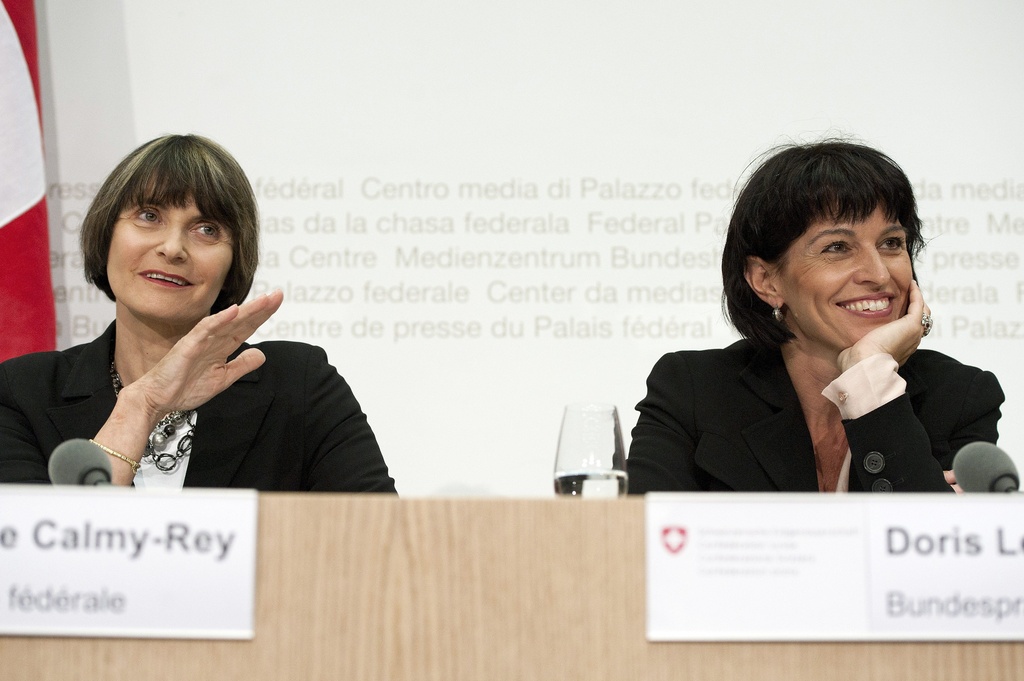
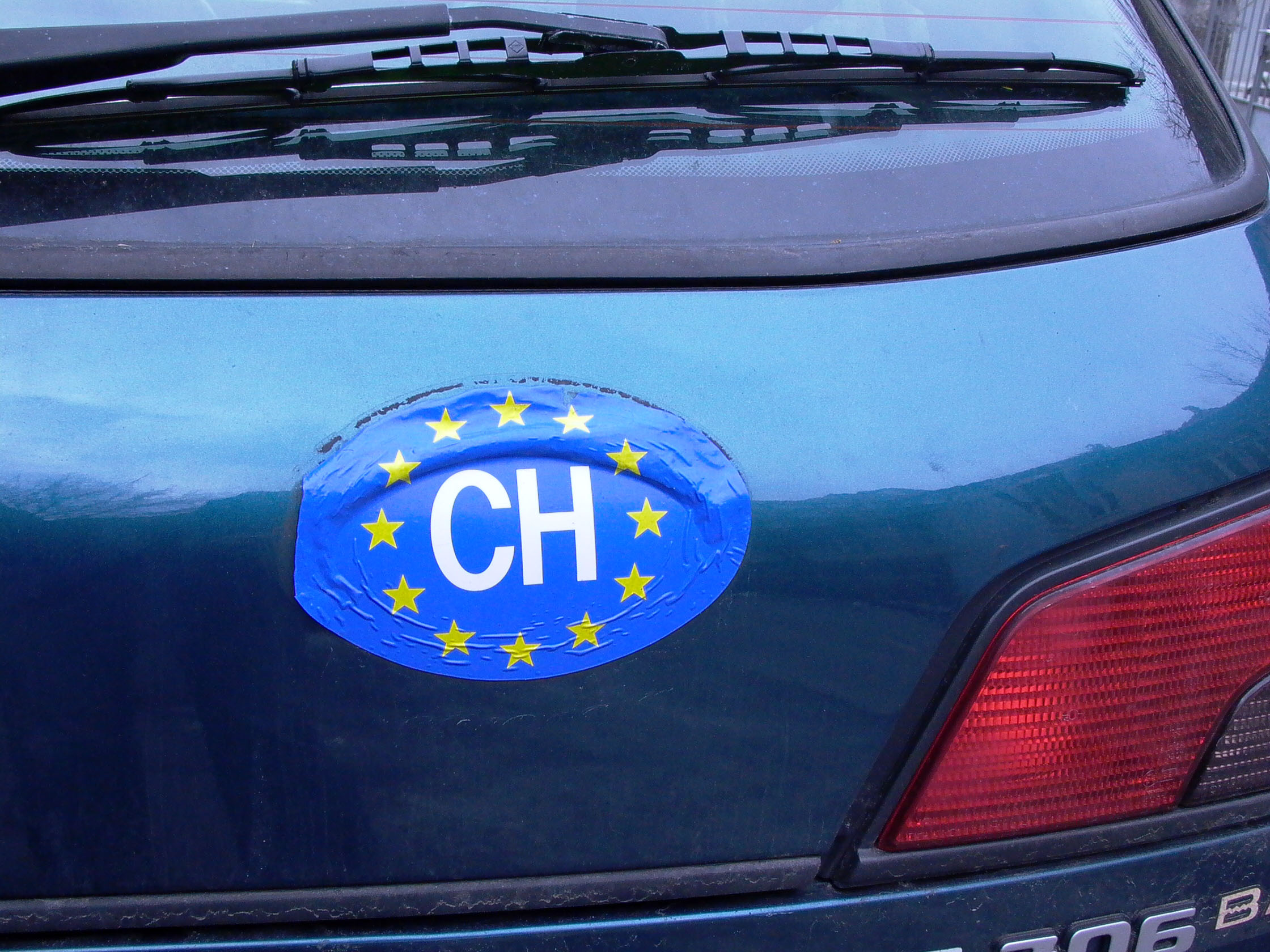
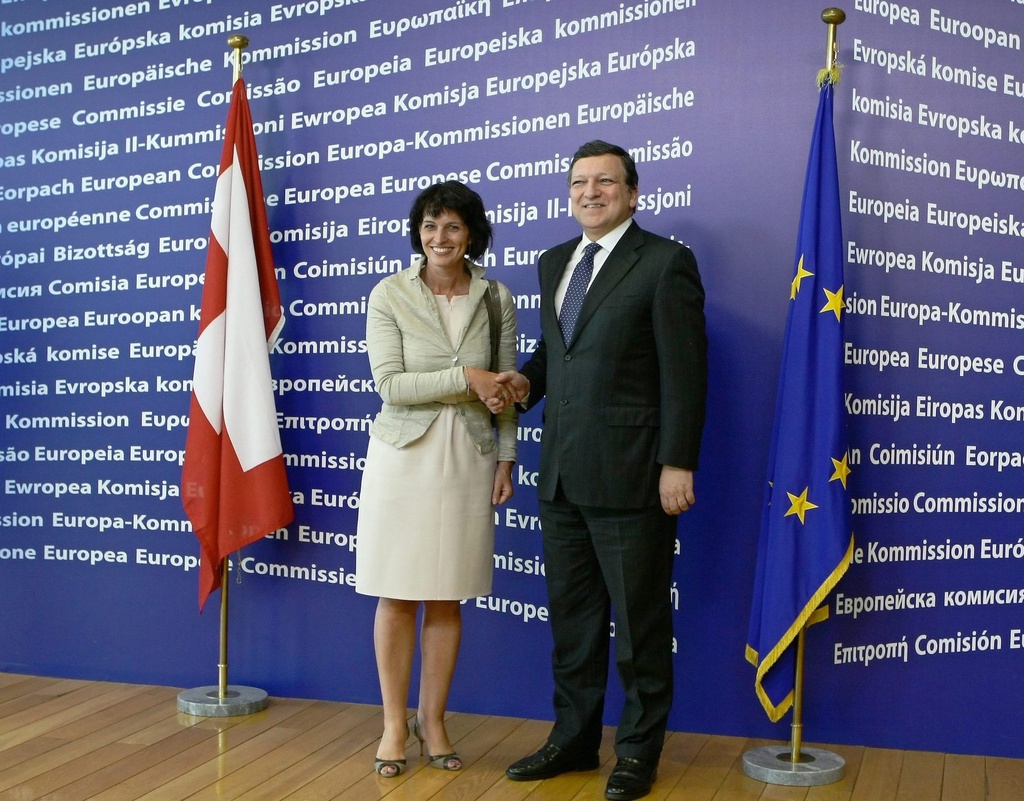
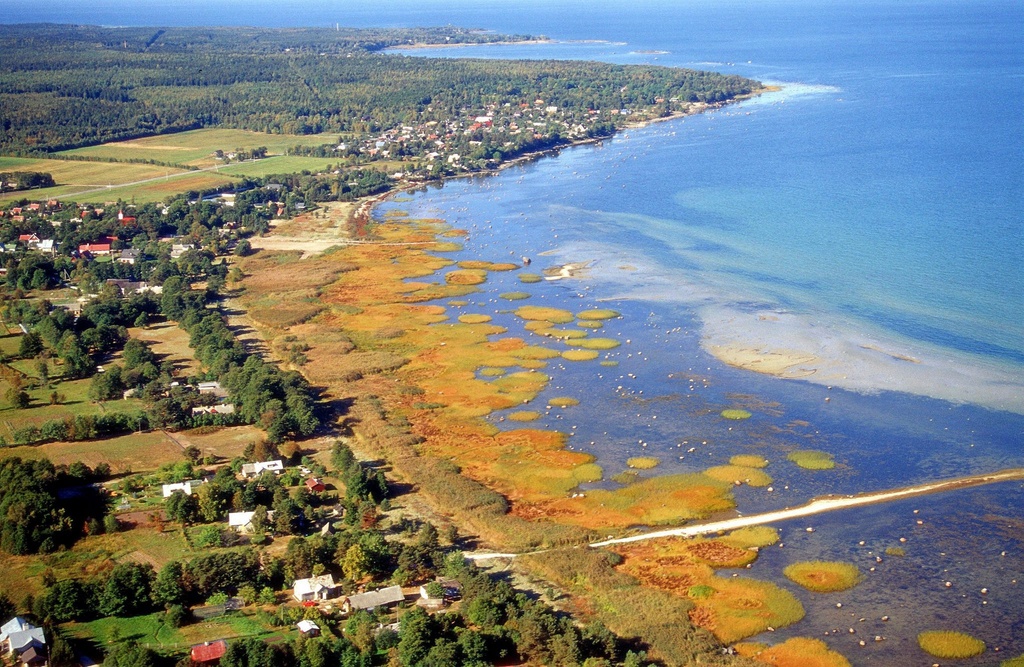

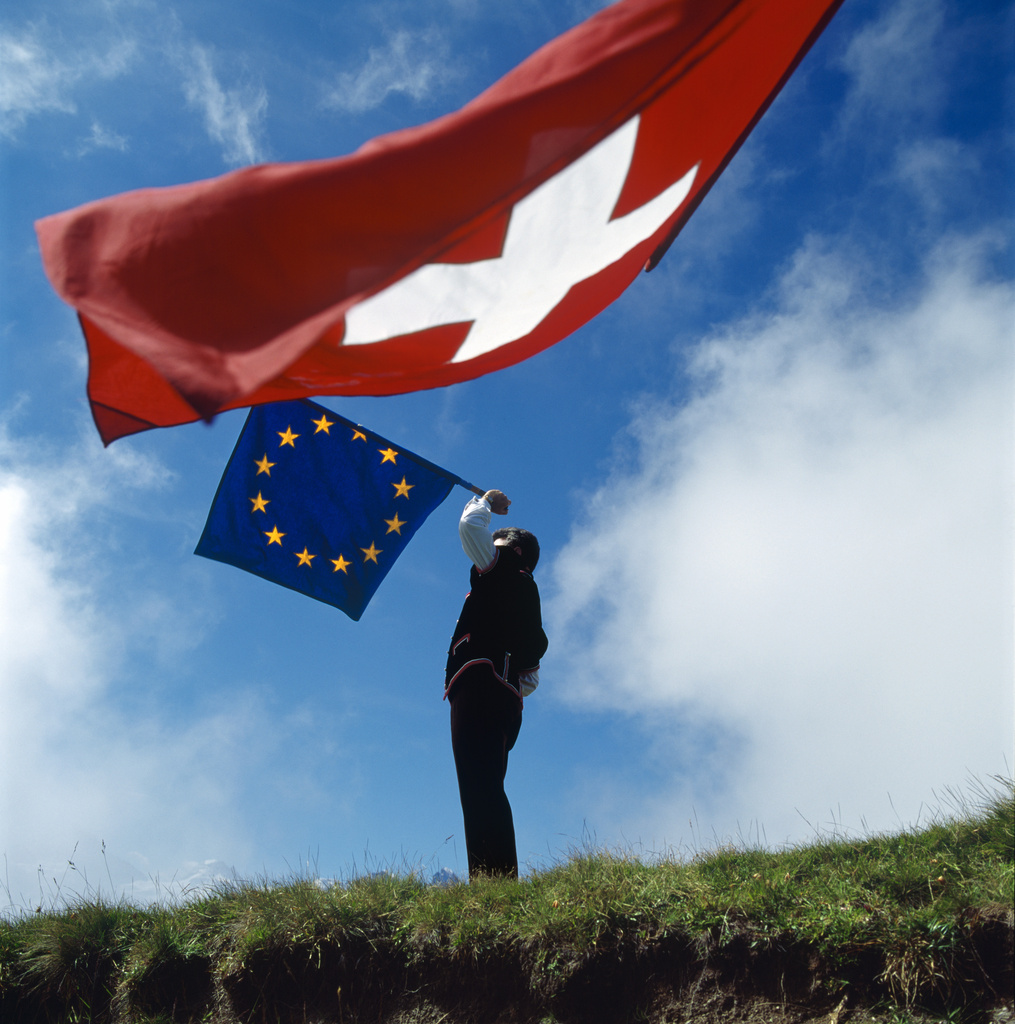
You can find an overview of ongoing debates with our journalists here. Please join us!
If you want to start a conversation about a topic raised in this article or want to report factual errors, email us at english@swissinfo.ch.